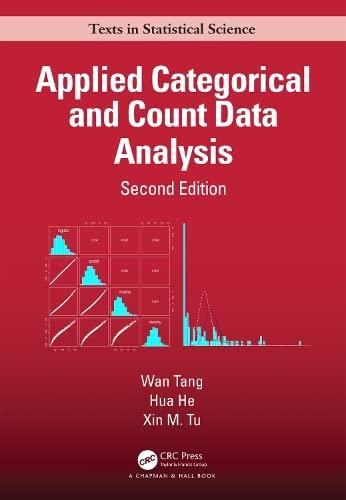This problem illustrates why exact inference may not behave well when conditional on continuous covariates. (a) Consider
Question:
This problem illustrates why exact inference may not behave well when conditional on continuous covariates.
(a) Consider the following equation where \(a_{1}, a_{2}, \ldots, a_{n}\) are some known numbers and \(y_{i}\) are binary variables,
\[\begin{equation*}\sum_{i=1}^{n} y_{i} a_{i}=0, \quad y_{i} \in\{0,1\}, \quad 1 \leq i \leq n \tag{4.52}\end{equation*}\]
If the trivial solution, \(y_{i}=0(1 \leq i \leq n)\), is the only set of \(y_{i}\) satisfying (4.52), show that for any binary \(z_{i} \in\{0,1\}\), the following equation
\[\sum_{i} y_{i} a_{i}=\sum_{i} z_{i} a_{i}\]
has a unique solution \(y_{i}=z_{i}(1 \leq i \leq n)\). When applied to exact logistic regression, this result implies that if \(x_{i}=a_{i}\), the observed \(y_{i}\) 's are the only possible outcomes that produce the sufficient statistic \(\sum_{i} y_{i} x_{i}\), making it impossible to perform exact inference.
(b) Let \(n=5\) and give example of \(a_{1}, \ldots, a_{5}\),
Step by Step Answer:

Applied Categorical And Count Data Analysis
ISBN: 9780367568276
2nd Edition
Authors: Wan Tang, Hua He, Xin M. Tu





